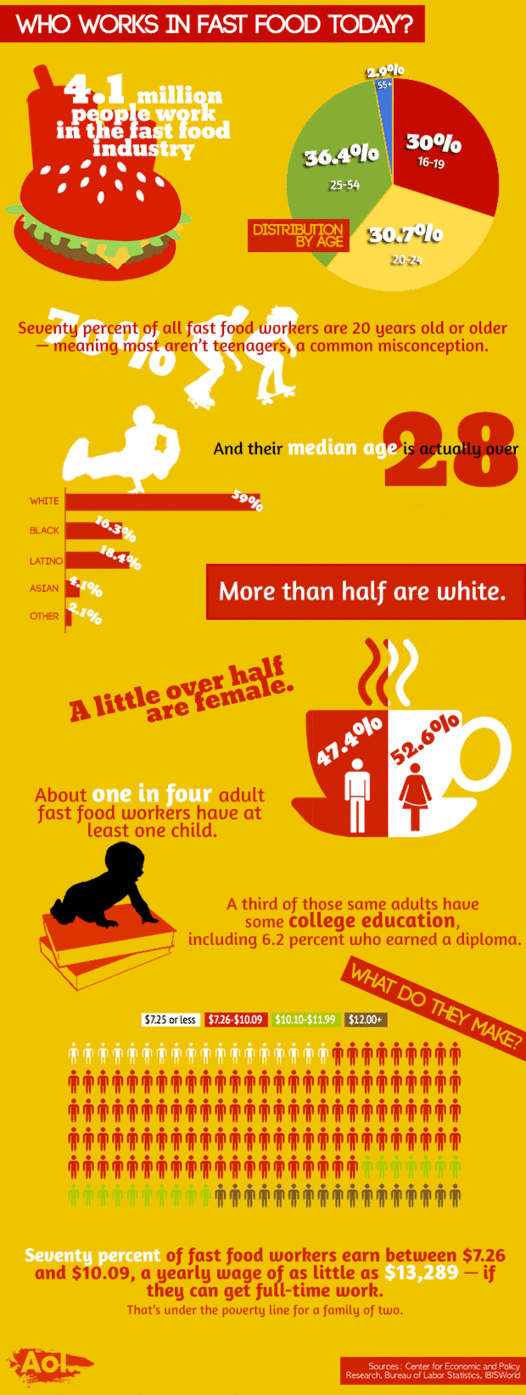
Date: 2026-01-17 Page is: DBtxt003.php txt00006138
FAST FOOD
WHO WORKS IN FAST FOOD TODAY?
An interesting infographic from 2013 ... a big source of employment
for young people but a poor launching pad for a career!
WHO WORKS IN FAST FOOD TODAY?
An interesting infographic from 2013 ... a big source of employment
for young people but a poor launching pad for a career!

Peter Burgess COMMENTARY
This graphic was archived in 2013, about 5 years since the implosion of the banking sector.
My perspective on the progress of society, the environment and the economy is that everything changed in 1973. Up to that point there had been a lot of progress starting with the impressive rebuild post WWII.
Keynes had been opposed to the way in which the victors in WWI had behaved, imposing draconian constraints on the German economy which resulted in the rise of Adolph Hitler and eventually WWII.
At the Bretton Woods conference in 1944, where Great Britain was respresented by Keynes, the eventual victors in WWII set out to ensure that mistake was not repeated. Bretton Woods set the stage for the establishment of the IMF and World Bank as well as enabling the Marshall Plan to finance European rebuilding. The result of these major initiatives, there was healthy economic growth from 1946 at the end of WWII to the mid 60s followed by major economic disruption in 1973 with the OPEC oil shocks.
Presidents Nixon, Ford and Carter had little success in addressing the economic malaise of the 1970s. President Reagan seemed to have more success with Reaganomics in the early 1980s which cut back on a lot of important government regulation ... but the driver of this apparent success was much more to do with outsourcing jobs from the USA to low wage countries like China and cutting back on valuable social safeguards in the USA. All of this appealed to Reagan's Republican base as well as the investment community, but for middle amd low income workers it was problematic. Skilled union workers in the industrial heartland of the USA ... Michigan, Indiana, Ohio, New York, Pennsylvania and more states that used to comprise the industrial core of the USA lost industrial companies either because of offshoring or because they moved from unionised areas of the USA to 'right to work' non-union parts of the country where wages were substantially lower.
I was fascinated by the 'fast food' industry in the United States when I first visited from the UK in 1960. At the time MacDonalds only had 4 units and was boasting about selling 1 million hamburgers ( ... I think this is factual ... it is what I remember, but I have not verified this recently! ... in any event it was very small compared to the present time)
I see the 'fast food' business model as being something of a problem. While it enables a huge number of young people to be paid for their time, the 'learning experience' is not very useful as a launching ground for a good career.
Peter Burgess